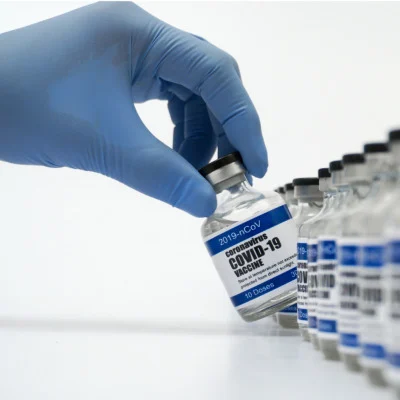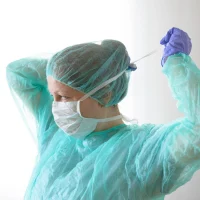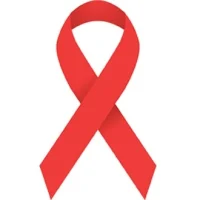Pfizer has completed the Phase 3 of its COVID-19 vaccine trial and is ready to seek authorisation for emergency use in the U.S. The vaccine is reported to be 95% effective. Two other vaccine candidates, those of Moderna and the Russian Gamaleya Research Institute, demonstrated 94.5% and 92% efficacy, respectively, but the trials are still ongoing.
You might also like:COVID-19 Vaccines: Tracking and Future Distribution
Pfizer Inc. and its partner BioNTech have released the results from the final efficacy analysis of the vaccine candidate, BNT162b2, which showed 95% efficacy across all groups (gender, race and ethnicity demographics) except for those over 65 years of age, where it was 94%. In general, the trials have demonstrated that “the vaccine was well tolerated, with most solicited adverse events resolving shortly after vaccination.” No significant side effects were observed, with fatigue being the most common one, appearing in 3.8% of participants after the administration of the second dose of vaccine, together with headache (2%).
The Phase 3 involved 43,661 participants. Half of them received two shots of the vaccine 21 days apart, and the other half got a placebo. In total, there were 170 cases of COVID-19, of which 162 among the volunteers who received the placebo. Of those 170 cases, 10 were severe, and 9 of them in the placebo group.
According to the FDA standards for emergency use authorisation, data on a vaccine candidate must be available for at least half of the trial participants for two-month follow-up period in Phase 3 trials, and Pfizer reports meeting this milestone. The companies plan to submit a request for EUA “within days” and the results may be expected in several weeks. They also are going to “share data with other regulatory agencies around the globe”.
Till the end of 2020, up to 50 million doses of BNT162b2 vaccine can be manufactured, and for 2021 the capacity is estimated at 1.3 billion doses.
In the meantime, Phase 3 studies are ongoing in other vaccine trials. Moderna completed enrolment of the Phase 3 study of its mRNA-1273 vaccine candidate on 22 October, and in Europe, the European Medicines Agency’s human medicines committee has started a ‘rolling review’ of the vaccine.
In the Johnson & Johnson’s JNJ-78436735 clinical trial enrolment is still open in Phase 3, to which the company is planning to attract up to 60,000 participants worldwide.
Phase 3 of Russia's vaccine Sputnik V trials involves 40,000 volunteers and has demonstrated 92% efficacy based on preliminary data obtained 21 days after volunteers received the first injection.
The results for another prospective vaccine
candidate, ChAdOx1 of AstroZeneca and Oxford University, were “imminent”, according
to The Guardian’s sources, and “it could be one of the first [vaccines] to
be rolled out.”
Image credit: Kunal
Mahto via iStock


![Tuberculosis Diagnostics: The Promise of [18F]FDT PET Imaging Tuberculosis Diagnostics: The Promise of [18F]FDT PET Imaging](https://res.cloudinary.com/healthmanagement-org/image/upload/c_thumb,f_auto,fl_lossy,h_184,q_90,w_500/v1721132076/cw/00127782_cw_image_wi_88cc5f34b1423cec414436d2748b40ce.webp)







